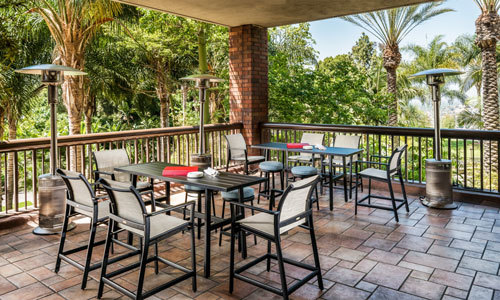8 minute read
|
Heaters
Choosing the right infrared patio heater to enhance both comfort and style in your outdoor space can be a bit of a challenge. With so many options available today, it’s easy to feel overwhelmed. Not too long ago, the mushroom-style portable heater was the go-to choice. While this design remains a classic, modern manufacturers like AEI have introduced a variety of models that cater to different aesthetic preferences and functional needs. Matching an infrared patio heater to your personal style requires some research, but it’s well worth the effort. The right heater can extend your outdoor season and elevate your space with both warmth and elegance. Consider this guide as you explore how to choose the perfect infrared patio heater for your home or business. When selecting an infrared patio heater, start by considering the two most common styles: mushroom and box. Each has its own advantages and fits different spaces and decor themes. If you're sitting on your deck or patio, take a moment to observe your surroundings. Imagine a classic mushroom-style heater—portable, versatile, and iconic. Now picture a box-shaped model hanging overhead, providing consistent warmth. Your preference might reflect your personality, but understanding the differences between these two types will help you make a more informed decision. Mushroom heaters are among the most popular choices due to their flexibility and ease of use. Here are some key facts about them: While they’re great for versatility, they may not blend as seamlessly into certain settings compared to box heaters. Box heaters are typically fixed units that resemble rectangular panels. They are often used in commercial spaces and provide a more subtle presence. Here are some important features: The rectangular design allows for better space management, keeping floors clear while still delivering effective heating. When choosing a fuel source, there’s no one-size-fits-all solution. Infrared patio heaters can run on natural gas, LP, or electricity. Each option offers unique benefits depending on your setup and preferences. Natural gas heaters require permanent installation and are typically connected to existing gas lines. They are ideal for homes or businesses with access to a gas supply. These heaters are durable and efficient, offering long-term use without the need for frequent refills. Electric infrared heaters, like those from Infratech, are a game-changer for those without a natural gas line. They are energy-efficient, easy to install, and can be integrated into your décor like lighting fixtures. Their sleek designs make them a great choice for modern spaces. LP heaters are perfect for spaces where flexibility is key. Portable mushroom heaters with LP tanks allow you to move them around as needed, making them ideal for seasonal use or events. They’re especially useful if your décor changes frequently. Each type of heater delivers the same infrared warmth, just through different power sources. Whether you choose gas, electric, or LP, you’ll enjoy the same level of comfort and efficiency. Once you’ve decided on the heater type and fuel source, consider how it will be mounted. Modern designs offer a range of mounting options that can fit seamlessly into your space. No matter which mounting option you choose, ensure that the structure is secure and that any electrical or gas lines are installed by a licensed professional. Modern infrared heaters now come in a variety of finishes, making it easier than ever to match them to your décor. No longer limited to silver aluminum, mushroom heaters are available in stainless steel, bronze, and other decorative options. This allows you to highlight the heater rather than hide it. Box heaters also offer a range of finishes, including black, bronze, and steel fascias. This means you can either make your heater a statement piece or keep it discreet, depending on your style. With so many options available today, matching an outdoor heater to your décor is easier than ever. Whether you prefer a bold design or a more subtle look, there’s a heater that will fit perfectly with your outdoor space. Want more information? Have a question? Contact us today, and we will be happy to help! A defoamer or an anti-foaming agent is a chemical additive that reduces and hinders the formation of foam in industrial process liquids. The terms anti-foam agent and defoamer are often used interchangeably. Strictly speaking, defoamers eliminate existing foam and anti-foamers prevent the formation of further foam. Commonly used agents are insoluble oils, polydimethylsiloxanes and other silicones, certain alcohols, stearates and glycols. The additive is used to prevent formation of foam or is added to break a foam already formed. Defoaming Agent,Natural Anti Foaming Agent,Natural Defoaming Agent,Silicon Antifoaming Agent Liaoning Kelong Fine Chemical Co.Ltd. , https://www.kelongchemy.comHow to Match Outdoor Heaters to Your Patio Décor

Outdoor Heaters Come in Two Distinct Shapes
Understanding Mushroom Heaters
Understanding Box Heaters
Fuel Source Options for Infrared Heaters
Natural Gas Heaters
Electric Heaters
LP (Liquid Propane) Heaters
Mounting Options for Your Heater
Choosing the Right Finish for Your Space
Go Back To Blog